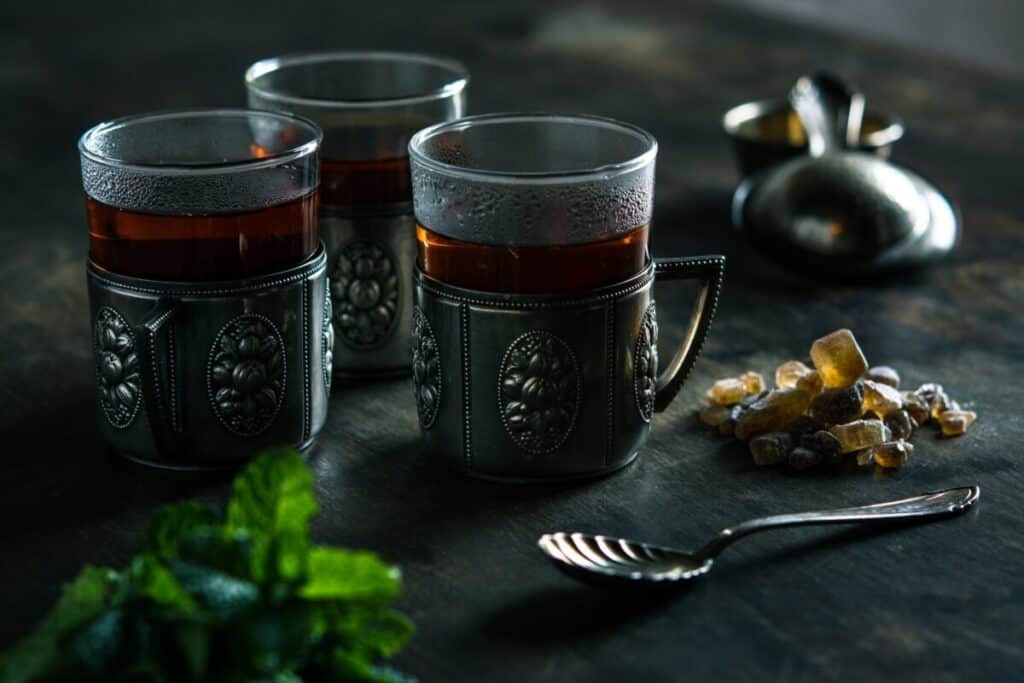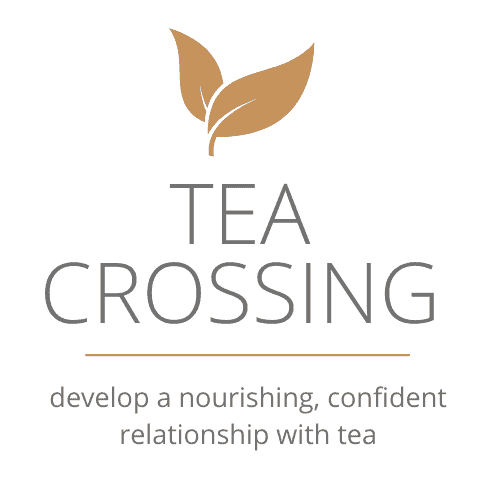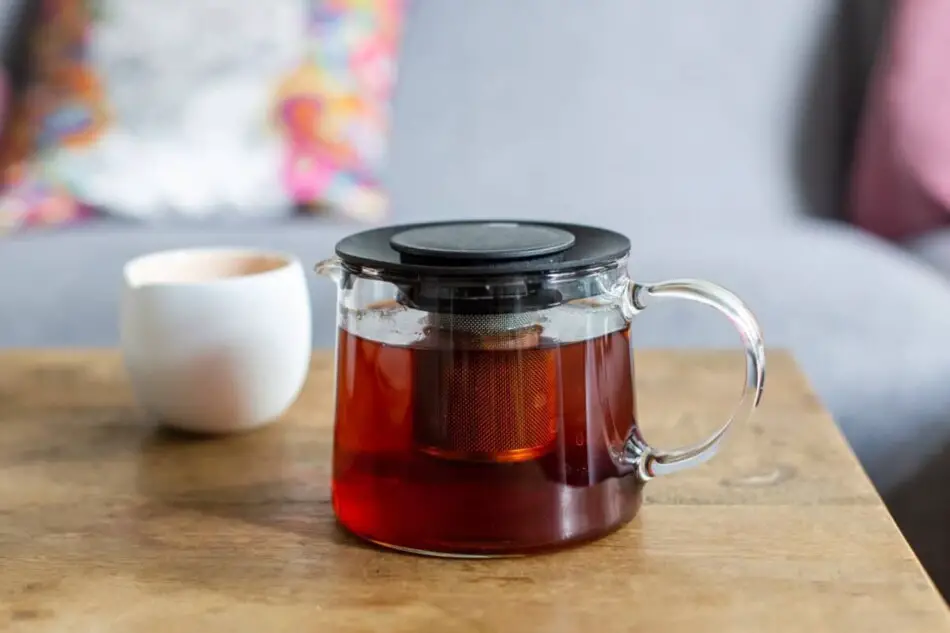Do you like to start your day with a cup of tea? If so, you may be wondering which black tea has the most caffeine. It can be tough to know which teas have more caffeine than others since the amount of caffeine in tea can vary depending on the type of tea, how it is brewed, and even the time of year.
In this blog post, I will break down all of the information you need to know about black tea and caffeine. We will discuss how much caffeine is in different types of black tea and how to make them. Stay tuned for my list of black teas that contain the most caffeine!
Generally speaking, Indian and Ceylon black teas have the highest caffeine content. These teas are typically grown at higher elevations, which results in a more caffeinated tea leaf.
If you’re looking for a black tea with a little less caffeine, opt for one that is lower in tannins. Tannins are what give tea its astringent flavor and also contribute to the caffeine content. So, a tea that is lower in tannins will also be lower in caffeine.

Ceylon Black Tea
Ceylon Black Tea is also one of the most popular types of black tea. This is due in part to its rich flavor and robust taste. When brewed properly, Ceylon Black Tea has a deep reddish-brown color with a slightly sweet taste.
Many people enjoy drinking Ceylon Black Tea with milk and sugar. This combination can help to round out the tea’s flavor and make it more palatable for those who are not used to the strong taste of black tea.
If you’re looking for a delicious and energizing tea, Ceylon Black Tea is a great choice. Just be sure to brew it properly so that you don’t end up with a bitter cup of tea. And if you’re sensitive to caffeine, you may want to avoid this type of tea. otherwise, enjoy!
What You Need
- Ceylon tea leaves
- Boiling water
- A teapot or teacup
- A strainer
- Milk (optional)
- Sugar (optional)
Steps
- First, heat some water to boiling and let it cool for about 30 seconds.
- This will ensure that your tea doesn’t become too bitter.
- Next, add about two teaspoons of Ceylon tea leaves per cup of water into your teapot or teacup. If you are using a teacup, be sure to use a strainer to hold the leaves in. Pour the hot water over the tea leaves and let them steep for three to five minutes. If you like, you can add milk and sugar to taste. Enjoy!
Earl Grey Tea
Earl Grey Tea is made with black tea and has about 50-60 milligrams of caffeine per cup. This puts it on the higher end of caffeinated beverages. If you’re looking for a more energizing drink, Earl Grey Tea is a great choice.
While many people enjoy drinking Earl Grey Tea, some find the taste to be too strong. If you’re not a fan of the flavor, try adding a bit of milk or honey to your cup. You may also want to experiment with different brands of Earl Grey Tea until you find one that you like.
If you’re interested in trying Earl Grey Tea, be sure to buy high-quality loose leaf tea. This will ensure that you get the best flavor and the most caffeine. Avoid tea bags, as they often contain lower-quality tea leaves. loose leaf tea also allows you to control the amount of tea you use, which can help prevent a bitter taste.
What You Need
- loose leaf earl grey tea
- a teapot or teacup
- hot water
- milk (optional)
- honey (optional)
Steps
- Start by heating some water. You can do this on the stove or in an electric kettle.
- While the water is heating up, place your teacup or teapot on a coaster or trivet. This will help to keep your countertop clean.
- Add one teaspoon of loose leaf earl grey tea for each cup of water you are using. For example, if you are using a six-cup teapot, add six teaspoons of earl grey tea. If you are using a teacup, add one teaspoon of earl grey tea.
- Once the water has reached a boiling point, carefully pour it over your tea. Be sure to use a tea cozy or hot pad when handling the teapot, as it will be quite hot.
- Allow the tea to steep for three to five minutes, then remove the lid and stir gently. If you are using milk, add it now. For a sweeter cup of tea, add honey to taste.
Earl grey tea is best enjoyed without milk or sweeteners, but feel free to experiment and find what you like best. If you want to make iced earl grey tea, follow the same steps but allow the tea to cool completely before adding ice.
Other Teas With High Caffeine Content
When it comes to tea, there are endless varieties to choose from asides from the two I mentioned. If you’re looking for a tea with high caffeine content, here are some of my favorites:
- Yerba mate: This South American tea is made from the leaves of a species of holly plant. Yerba mate contains around 85 mg of caffeine per cup, making it a great choice if you need an energy boost.
- Matcha: Matcha is a type of green tea that originates from Japan. It’s made from the finely ground powder of specially grown and processed green tea leaves. One cup of matcha can contain up to 34 mg of caffeine.
- Black tea: Black teas are fully oxidized, meaning they undergo the longest period of fermentation. This results in a robust flavor and high caffeine content – around 60 mg per cup.
- Oolong tea: Oolong teas are semi-oxidized, giving them a unique flavor that falls somewhere between green and black teas. Caffeine levels in oolong tea can vary widely, but they’re typically lower than in black teas.
So there you have it – some of our favorite high caffeine teas. If you need an energy boost, give one of these a try!
Final Words
I think it’s safe to say that Ceylon black tea has the most caffeine. However, many variables can affect a tea’s caffeine content, such as how it’s grown, processed, and brewed. So if you’re looking for a high-caffeine tea, Assam is a good place to start, but it’s not the only option.
Do you have a favorite high-caffeine tea? Let me know in the comments below!

